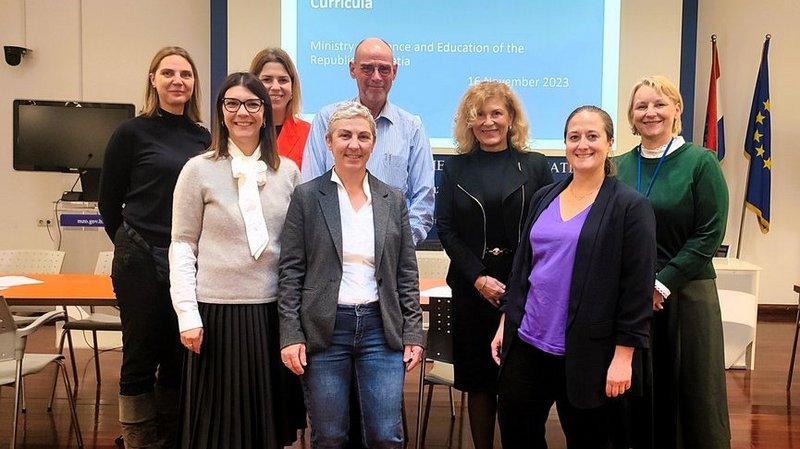Event review: Internationalized and flexible curricula
Thursday, 16 November 2023, 09.30 – 16.00
Ministry of Science and Education of the Republic of Croatia
Curricula define the framework for higher education and provide information on learning outcomes and the qualification profile of graduates. Their design and implementation must ensure a distribution of ECTS credits corresponding to the actual workload and the possibility to complete credits without an increase in study time – even during mobility periods spent at foreign Higher Education Institutions. These requirements demand suitable curricular structures, which transparently display learning outcomes and qualifications for all student groups, including those currently underrepresented in higher education.
Besides flexibility to enable different forms of credit mobility, international and intercultural competences and how to include them in curricula, gain relevance. In addition, course content should cover international issues and research questions and, if necessary, challenge Eurocentric perspectives in the spirit of decolonisation.
More than 40 representatives of Croatian higher education institutions joined a workshop that linked these aspects in a practical way on 16 November 2023 at the Ministry of Science and Education of the Republic of Croatia. In the spirit of peer learning, two Austrian experts for the European Higher Education Area, Christina Raab (Universität Innsbruck) and Agnes Kriz (University of Applied Sciences Technikum Wien) introduced the participants to the relevance and general embedding of learning outcomes, the state-of-the-art discussion on the internationalisation of curricula and mobility-promoting structures for curricula.
We as teachers should and can do better
Internationally renowned expert Kees Kouwenaar provoked the teachers present with the above statement and presented the LOUIS tool for transversal learning outcomes. It offers a modular system that facilitates weaving transversal/international competences into courses and curricula. These international and intercultural skills accompany an inclusive "internationalisation of the curriculum" for all university members and thus also for non-mobile students.
The workshop was based on a series of workshop organized in Austria for Austrian HEIs and, as these workshops, was part of the Erasmus+ KA 3 project 3-IN-AT-PLUS. The topic reflects the objectives of increasing the level of internationalisation of higher education of the “National Development Plan for the Education System of the Republic of Croatia until 2027” and the measures related to it, such as sustainability of study programmes in foreign languages, increasing the number of joint study programmes, increasing student and teacher mobility, as well as increasing the rate of recognition of ECTS gained during mobility.
This event was organized by OeAD – Austria’s agency for Education and Internationalisation and the Ministry of Science and Education of Croatia. It was co-funded by the Austrian Ministry of Education, Science and Research, as well as by the project 3-IN-AT-PLUS „INterconnection/INnovation/INclusion: Austrian contributions to the EHEA 2030 – 3-IN-AT-PLUS“ – a KA3-activity of the European Union. Views and opinions expressed are however those of the author(s) only and do not necessarily reflect those of the European Union or the European Education and Culture Executive Agency (EACEA). Neither the European Union nor EACEA can be held responsible for them.
